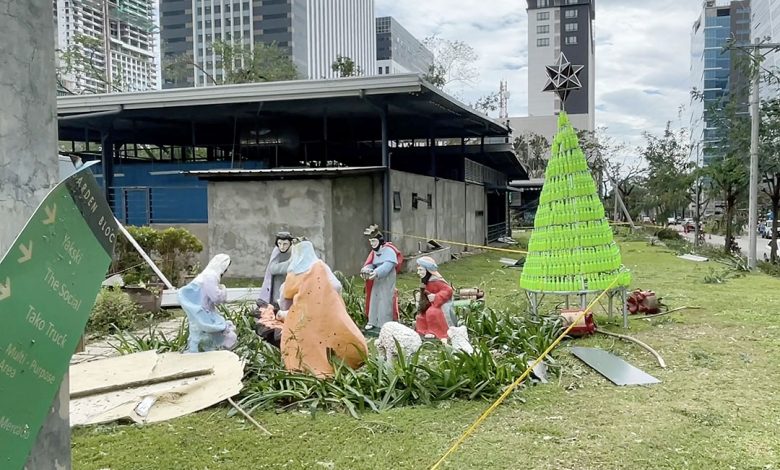Cebu’s IT-BPM companies struggle in Odette aftermath; daily losses at P500 million

By Arjay L. Balinbin, Senior Reporter
MANY Cebu-based information technology and business process management (IT-BPM) firms have been badly affected by typhoon Rai (local name: Odette), an industry leader said on Wednesday, adding that estimated losses are at P500 million a day due to the inability to operate.
“I would say that 80% of the IT-BPM companies are down. Because during the pandemic we’ve been working on a work-from-home model, and this model is the biggest victim of Odette this time,” Cebu IT-BPM Organization (CIB.O) President Exuperto P. Cabataña told BusinessWorld in a phone interview.
He said more than 250 IT-BPM companies in the province are concentrated in the highly urbanized cities of Cebu, Mandaue and Lapu-Lapu, which all experienced heavy damage due to the typhoon. Around 75% to 80% of these companies have adopted the work-from-home setup.
“The houses have no power and if there’s no power, even if there’s signal, they cannot communicate or use the internet,” Mr. Cabataña said. “The internet is also intermittent, so it’s very, very bad.”
Most IT-BPM firms adopted the work-from-home model to cope with the pandemic. “The pandemic did not really affect us in terms of revenue or growth, because we were able to continue operating despite the pandemic,” he added.
The typhoon slammed into the Philippines on Dec. 16 and left the country on Dec. 18, killing nearly 400 people and affecting 1.8 million, displacing 630,000 of them, according to the United Nations Office for the Coordination of Humanitarian Affairs.
Meanwhile, the lone business process outsourcing company in Siargao is transporting its employees back to the main cities, as many of the city’s facilities have been destroyed and power restoration is expected to take months.
Callbox’s villas in Siargao, where the typhoon made its first landfall, were destroyed, affecting more than a hundred employees.
“These workers are from different provinces such as Cebu, Dumaguete, and Davao, while some are locals,” Callbox Siargao Manager Carl M. Biaoco said in a phone interview.
“The third floor of our building, which is still unfinished, was totally wrecked. Some of our computers were still in the villas, five villas with 10 to 20 computers, and they were all damaged,” he added.
He said the non-local workers will be offered to relocate to other Callbox branches, such as those in Iloilo and Davao.
“Our problem now is that the locals can’t leave their place, and we can’t offer a work-from-home arrangement because the network is still down. According to some engineers we’ve spoken with, the restoration of electricity could take six to eight months,” Mr. Biaoco also said.
In Cebu, Mr. Cabataña said that prior to the typhoon, the IT-BPM workers were already preparing to return to their offices.
“We were actually starting to actually work on going back to the office. I told NEDA (National Economic and Development Authority) that 75% [of the workers] were expected to go back to the office, while only around 20% would continue to work from anywhere; but while we were preparing to go back to the office, this Odette happened, destroying the facilities,” he said.
He also noted that many of the business process outsourcing companies have their own generator sets, but they are facing challenges in securing enough fuel as they wait for electricity to be restored.
“There’s no real shortage of fuel. I can say it’s an artificial shortage. It’s just that people are panic-buying and hoarding,” he said.
Water supply is also another big challenge for their operation. “In my case, what I do is I buy water from a water refilling station for our employees,” Mr. Cabataña said.
For the province’s recovery, he suggested that the government take a “sharp-shooting approach” rather than a “shotgun approach.”
“If the objective is to minimize revenue loss and to recover very quickly, we can actually allocate attention that is more focused on the business districts by making sure that telcos are working, there’s 100% power, there’s 100% fuel and 100% water,” Mr. Cabataña said.
“It’s for the business to continue working while the rest of the island is being fixed, because ang nangyayari there’s a tendency to shotgun, or trying to fix everything all at once,” he added.




